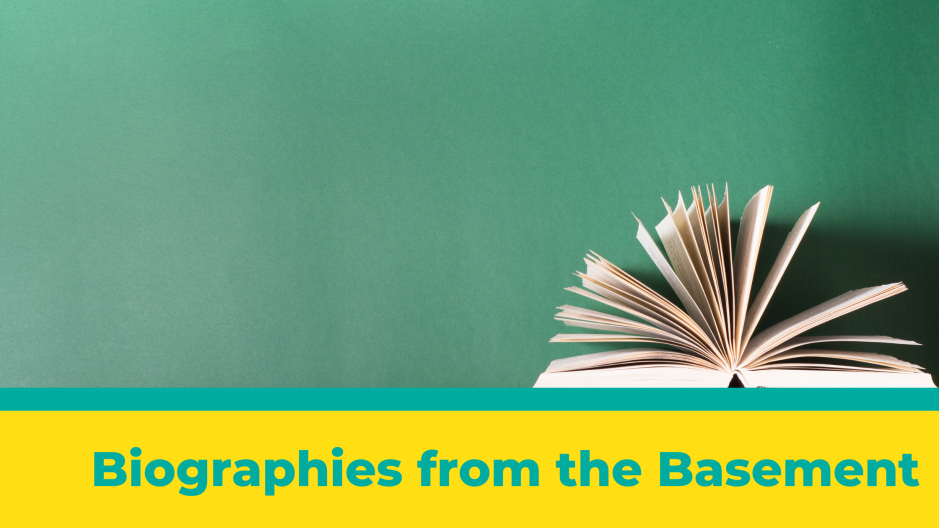Our colleague, Claudia is back with her monthly blog post about our special Biographies Collection at Kensington Central Library. Over to Claudia –
Next Friday 18 November marks the centenary of the death one of the world’s greatest ever novelists, Marcel Proust, whose magnum opus In Search of Lost Time, published in 1913, is one of those most influential literary works which seem to change the collective imaginative landscape. Proust described French high society life during the era known as La Belle Epoque, a period at the end of the 19th century which witnessed immense creativity and growth in the arts, culture and politics in France and beyond. Proust was deeply emmeshed in the glittering salon world he depicts, but as a gay man of Jewish heritage he was also outside it, and able to subject it to the penetrating gaze of one who is simultaneously an insider and ‘other’.





Our display of books from the special Biographies Collection at Kensington Central Library this month will showcase some of our many wonderful biographies of Proust, as well as some of his contemporaries such as fellow writer Emile Zola, actor Sarah Bernhard, composer Gabriel Fauré and painter Henri de Toulouse-Lautrec.
What is it, from the reader’s point of view, that makes Proust so special and makes him speak to people over a century later in a totally different society? I asked a dear friend and devoted user of our library service, who I know to be a huge Proust fan, to put into words what he means to her. I think she expresses brilliantly how a book can open an entire new world to the reader – a phenomenon that makes libraries such magical portals. Before I ‘hand over’ to her, I’d like to remind readers to check out our podcast about the special Biographies Collection, Biography Central. It’s available on Spotify, Apple Podcasts, Google Podcasts, Pocket Casts, RadioPublic and Anchor and wherever you get your podcasts.
Marcel Proust – A Reader’s View
Marcel Proust’s novel In Search of Lost Time is made up of seven volumes and tells the story of ‘Marcel’ (not exactly Proust, but a strange, dream version of him) from early childhood in Belle Epoque Paris to the end of the First World War and the moment at which he realises he is now ready to write the novel we’ve just read. It has an enormous cast of extraordinary characters, all of whom have some kind of impact on the formation of the writer whose experiences it describes.
It takes a long time to read Proust – but that’s the point! When I embarked on it, I soon realized it wasn’t like reading anything I’d read before and that I would have to slow down and take my time with each sentence. The narrator takes you into a labyrinth of introspection, describing the sensory experiences and emotional shifts he experiences with a depth of forensic detail that is overwhelming. Out and about in the society he longs to conquer, the narrator’s capacity for acute and often brutal observation excavates the peculiarities and contradictions in his characters. Above all and not surprisingly, Proust takes his time with every possible reflection, speculation, and with the many lengthy digressions that certainly made me feel not so much that I was seeing what he saw as that I was inside his mind. I had one of the most exciting reading experiences I’ve ever had and a revelation of what Proust was doing when I was half way through the third book, The Guermantes Way. In that volume, there is a 150-page section which describes in characteristically obsessive detail a grand dinner in Paris at which Marcel is a guest. Marcel arrived at the dinner as I was leaving the station on a train journey. People arrived, people greeted each other, went in to dinner, ate, drank, talked. Marcel left the dinner party two-and-a-half hours later as I got off the train. 150 pages. The dinner party had happened in my imagination in real time, by a fantastic coincidence the length of my train journey, and I was stunned at how brilliantly he had achieved the illusion that I too had lived it.
Proust is also very funny! The vicious Madame Verdurin, cruel and snobbish hostess of her ghastly ‘salon’ at which people are feted one moment and abused the next dislocates her jaw laughing at a bad joke. Marcel is constantly destabilised by events, reacts disproportionately to the unexpected, and puts his foot in it. A recent critic compared the Marcel of the novel to Larry David in Curb your Enthusiasm and it’s a great comparison!
I don’t know if ‘Proust can change your life’ (as Alain de Boton claims in the title of his 2006 book about him) – I know there is no-one like him and nothing like his achievement and reading it is an epic journey.
Claudia, Kensington Central Library


